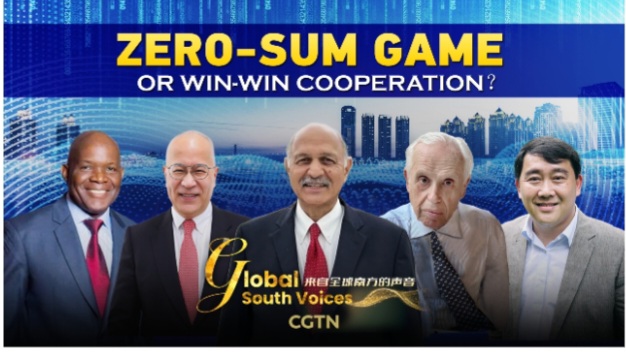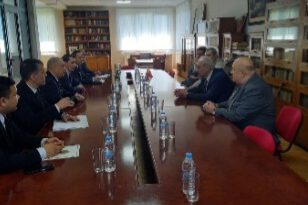Shifting power: Global South on China’s evolving role in the international order
“In an article in the New York Times, they mentioned that 40 years ago, experts believed China’s experiment with socialism with Chinese characteristics would fail. Today, we are still waiting for that failure, but China did not fail. The ideological perspective on China from the U.S. does not align with the reality of China’s success,” said host Mushahid Hussain Sayed, former chairman of Pakistan’s Senate Defense Committee on CGTN’s show Global South Voices. This episode discussed Antony Blinken’s “table and menu” theory, examining China’s evolving role in the international arena.
On how to regard China’s role in todays’s shifting world, Einar Tangen, American commentator and Senior Fellow of Taihe Institute, emphasized that China’s role in the global order is fundamentally different from the U.S. He highlighted the U.S.’s historical reliance on imperialism, war, and exploitation of other nations, contrasting this with China’s focus on internal development, peace, and trade. He underscored that China’s approach is based on mutual respect, consensus-building, and economic progress, without the imposition of ideology. He also discussed how China has built parallel institutions like the Belt and Road Initiative (BRI), Asian Infrastructure Investment Bank (AIIB), and BRICS to promote a new, cooperative international order, as opposed to the U.S.-led system that aims to maintain dominance.
Roberto Savio, founder of the Inter Press Service (IPS) described the historical shifts, noting China’s re-emergence as a global power. He pointed out that global power dynamics are in transition, with U.S. influence declining and multipolarity rising. “World crises like climate change and population decline demand global cooperation, yet the U.S. remains trapped in outdated policies,” said Savio. He also stressed the importance of diversity in ideologies and governance, proposing that cooperation between nations with different cultures and ideologies is essential for solving global problems.
Sous Yara, spokesman of the Cambodian People’s Party, emphasized the importance of China’s multilateral diplomacy and its peaceful rise, particularly through initiatives like the Belt and Road Initiative (BRI). He highlighted that China’s approach focuses on mutual respect, trust, and cooperation without ideological imposition. Yara pointed out that China’s contributions, including the Global Development Initiative, promote connectivity and collaboration, helping to bridge gaps between nations. For Cambodia and Southeast Asia, China’s leadership fosters balanced foreign policy and trade relations, emphasizing the peaceful resolution of differences and collective prosperity.
China-Africa relationship has been a model for South-South cooperation. Fred M’membe, president of the Socialist Party Zambia, highlighted the historical relationship between China and Africa, stressing China’s support for Africa’s liberation, sovereignty, and independence. He pointed out that China treats African countries with respect and equality, unlike the condescending approach of some Western nations. M’membe supported China’s vision of global cooperation and multipolarity, suggesting that China’s actions provide a sharp contrast to the U.S.’s “if you’re not at the table, you’re on the menu” mentality.



